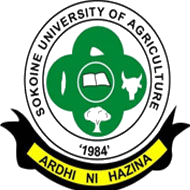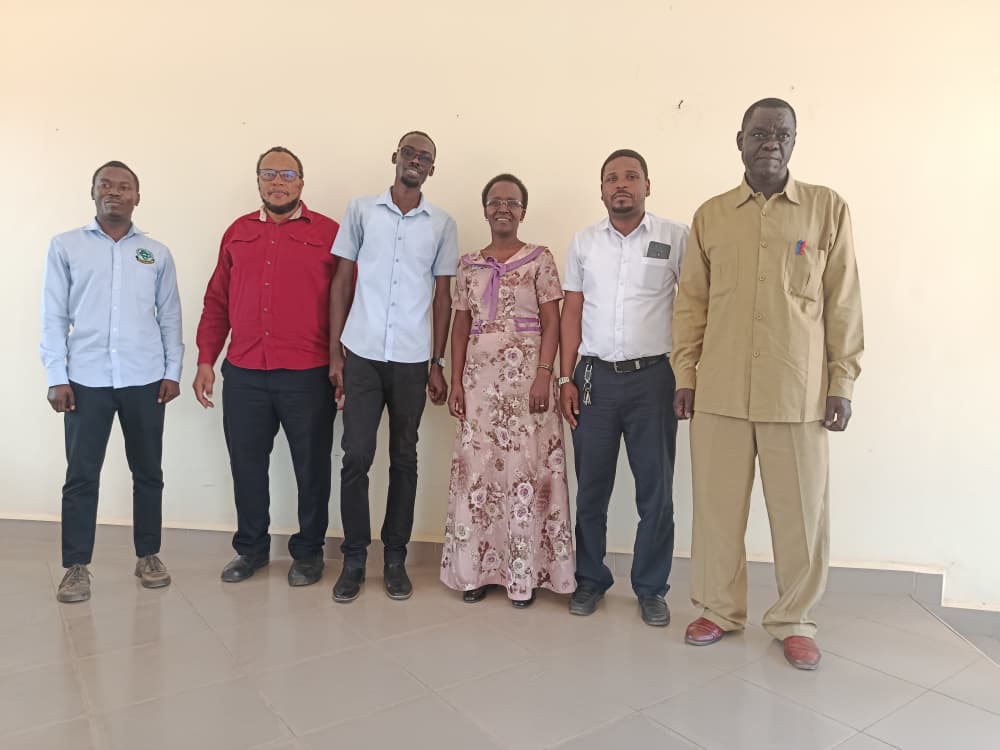The department is delighted to congratulate Mr. Maziku Zephania Makoye on the successful defence of his Master of Science degree in Aquaculture from the Department of Animal, Aquaculture and Range Sciences, Sokoine University of Agriculture (SUA).
Mr. Maziku conducted his research on “Circular Economy Adoption in Vermiprotein and Vermicompost Production Using Eisenia fetida.” The study examined how circular economy principles can be applied to enhance sustainable waste management and organic resource utilization through vermiculture. Specifically, the research explored the use of earthworms (Eisenia fetida) to transform organic waste into two valuable products: vermiprotein (worm biomass as an alternative protein source) and vermicompost (nutrient-rich organic fertilizer).
 The research was jointly supervised by Dr. Renalda Nanziga Munubi and Dr. Augustino Waryoba Mwandya, both senior lecturers in the Department of Animal, Aquaculture and Range Sciences. Their mentorship provided critical guidance in shaping the study’s design, analysis, and presentation.
The research was jointly supervised by Dr. Renalda Nanziga Munubi and Dr. Augustino Waryoba Mwandya, both senior lecturers in the Department of Animal, Aquaculture and Range Sciences. Their mentorship provided critical guidance in shaping the study’s design, analysis, and presentation.
This dissertation responds to urgent challenges in Tanzania and beyond, including increasing waste accumulation, dependence on expensive conventional animal feeds, and the decline in soil fertility. By applying circular economy approaches, the study demonstrates how resource recovery and value addition from waste can contribute to sustainable development goals.
Methodologically, the study combined experimental vermiculture trials with economic and environmental assessments. Data were collected on worm biomass yield, protein content, vermicompost nutrient composition, and applications in both animal feed and crop production. Findings revealed that vermiprotein has strong potential as a substitute for fishmeal and soybean meal in livestock feeds, reducing feed shortages and competition between humans and animals for plant-based proteins. Vermicompost was shown to significantly enhance soil fertility and crop yields, offering a cost-effective and eco-friendly alternative to chemical fertilizers.
The study concludes that adopting circular economy strategies through vermiculture not only improves food security and agricultural sustainability but also minimizes environmental pollution and reduces waste management costs. Recommendations include scaling up vermiculture enterprises, promoting farmer training, and strengthening enabling policies for circular economy adoption in Tanzania.
Importantly, the research has already resulted in the publication of two journal articles: Quality of Vermicompost Produced from Animal Manure, and Organic Manure as Rearing Substrates for Red Worms (Eisenia fetida): Effects on Chemical Composition and Growth Performance, published in the Journal of Agriculture, Forestry and Fisheries, as one of the the academic and practical impact of this research study.

The Department of Animal, Aquaculture, and Range Sciences
The College of Agriculture, Sokoine University of Agriculture
Share this page

